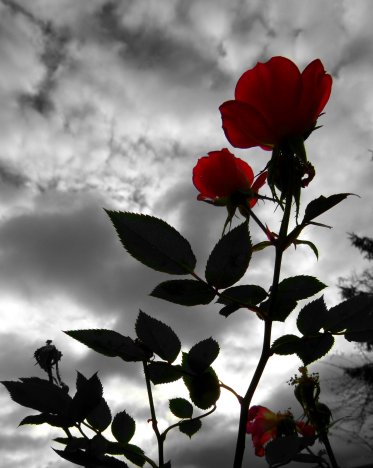
Image: Sue Vincent
Early morning is my favorite time of day. My habit is to walk into the bathroom, pull up the blind, and peer outside to see what this new day is like. When I looked out the window early this morning, it was not yet daylight. The world was a soft, hazy, grayish blue. Snow! Newly fallen snow covered the earth like a pristine, frigid blanket. The wind was not blowing and the fresh day seemed eerily still. Even the early morning shrieks of black crows were absent. I glanced out over the wooded hillside, far beyond this second–story window. Everything was quiet. Subdued. Bleak.
A winter storm moved in yesterday, just as the weather reports predicted. By noon, the rural roads in our neighborhood were already covered with the kind of large snowflakes that quietly surrounded everything. There is something about the anticipation of a snowstorm that stirs us to remember our childhood.
“Oh, this is the perfect snowstorm! It’s the kind of snowfall that I love,” I shouted to my husband. “It’s exactly the kind of crisp, cold winter day that makes me so excited. I feel like I am a little child when I see this snow,” I continued to tell him. I admit I am nostalgic when snow brings layers of distant memories back to my mind. Memories of past years arrived with the snow. They are like a child’s building blocks, tumbling down one over another. Thoughts of childhood mingle with the aromas in my mother’s kitchen on distant winter days as I peered through the fogged–up windowpane.
On winter days, my mother often baked chocolate chip cookies, yeast breads, and pumpkin pies for the family. She knew her four children would be hungry when they came home from school in the late afternoon. We smelled the fragrances of her baking as we opened the back door into the kitchen.
In the early 1950s, my mother could have been one of the women in the magazine advertisements. She might have been Betty Crocker. She wore a freshly ironed cotton house dress as she cleaned, cooked, and sang hymns as she moved through the house. She had a clear alto voice and the people at church always requested that she sing something special in church on Sundays.
I have no memories of my mother wearing anything but a cotton dress every day. She wrapped a starched and ironed pastel gingham apron around her waist. The apron covered the front of her dress when she was cooking. Later, when I was in high school, she expanded her wardrobe and occasionally wore a pair of slacks.
We grew up knowing for sure that our mother was a lady. It had nothing to do with our humble economic status. Prior to the 1960s a lady would never think of wearing anything but a dress every day to do her household chores and cooking for her family.
Yesterday, my own kitchen was warmer than usual. The room smelled like sweet, ripe, red cherries and spicy cinnamon. I opened the oven door a little at a time to let the hot, fragrant vapors escape and warm the room around me. I put on oven mitts, reached into the hot oven, and slowly, steadily, pulled out the piping hot glass baking dish. This was the perfect day to bake a cherry crisp! Before it had a chance to cool, I dug a soup spoon deep into the cherry crisp and removed a little dish of the sweetness. I told myself, Just a little taste!
As I lifted the warm, red cherry delight to my mouth, I reflected on the snow outside the windows, noticing how it had accumulated on the old, weathered gray fence that surrounds the yard. The oak fence was built by my husband, our children, and some of their strong, male teenage friends in the summer of 1977. The fence surrounded the new swimming pool we had built that spring. Every year since then, in springtime, the fence becomes the backdrop for the perennial plants and flowers when they begin to bloom.
Why is it that on solitary winter days, distant memories come calling?
Today, I thought of one particular sunny day in August. It was my birthday, and my father gave me a red rose bush. It was in a black plastic container, and the thin roots of the rose bush burst out from holes in the bottom of that container. I had a feeling the rose bush desperately wanted to be planted so it could grow beyond the container. I was young, probably in my 20s, and busy with my family. I had not taken the time to appreciate the gift and did not plant it for a couple more years. This particular memory makes me feel so disappointed in myself. Because of my neglect, the bush did not thrive. How could it? It was meant to be planted by just such a fence as I had, so that it could bloom and twine upwards toward the morning light.
About 40 years have passed since my father gave me that rose bush. Once it was finally nestled in the rich, dark earth next to the wooden fence, I never had the heart to dig it up, even though it never really bloomed. I left it there as a reminder that time passes so rapidly, and one day it is too late to say “thank you.” Too late to appreciate some gifts we received when we were too young. A dull sorrow always took root in my heart when I thought of that rose bush.
This fresh snowfall on the rugged fence today unearths more memories. Last summer, I found something so unexpected out there on that old fence that I had to walk closer to have a better look. Could it possibly be what I was thinking it might be? Closer inspection revealed that the old rose bush my father had given me for my birthday so long ago was in full bloom! A joyous riot of deep red color wound all over the fence. The thorny, thick vine moved through the rough, weatherworn planks, from the inside of the fence to the outside. From every angle, the fully blooming roses could be seen. The tender tips of the branches reached upwards, far beyond the tops of the fence slats. It reached upwards, swaying in the sunlight of a balmy summer day. I stood entranced by those old–fashioned, deep red roses. They were wide open, with soft crimson petals flying outward. There was an inner crown of tiny little yellow pistils that looked like a circle of delicate yellow flowers surrounding the roses’ centers.
My father’s roses were blooming! In my great amazement, I said it out loud. “My father’s red climbing roses are blooming! Oh, thank you, Dad!”
I thought about my father’s birth name, William—an ancient name going back to the Teutonic ages. It’s a strong name. A perfect name for a little boy who would be orphaned in childhood. A young husband who was drafted into WW II and would leave his wife and new baby girl to spend two years in freezing trenches during winter days in Europe. A hard–working father who would labor in the steel mills for a weekly paycheck to support the family he loved. A valiant man who gave the days and years of his life for the family and never expected anything in return. We learned the lessons of living a good life in the home he built for us with his own hands.
Names are important. Dad’s Germanic name is Wilhelm. It can be broken down into two parts. “Will” means to desire. “Helm” is a helmet. William, my father, desired to teach his children how to live an honorable life. In order to do that, he picked up his steel lunch bucket and safety helmet in the early morning when his children were still asleep in their beds. In the darkness of the morning, Dad left for his long walk down the railroad tracks and through the woods, and finally crossed over the creek on the wooden planks of a swinging bridge to eventually reach the entrance gate of the steel mill.
Today, I know that beneath the layer of snow, just in front of the weathered fence, there is a red rose bush waiting through the silence of the wintry weather.
Sunshine will come in the spring to warm the chilled earth. The red rose bush will begin to grow once again.
My husband has turned up the radio in the warm kitchen. He is listening to the radio. I walk into the kitchen and we embrace. My husband has a wide smile on his face. He tells me this is his favorite song. We dance together until the song ends.
Spring did arrive as it always does, but the winter months had been unusually harsh, and we lost many plants and trees during the icy storms. William’s red roses never bloomed again.
From the book: Walking by Inner Vision: Stories & Poems, DLD Books, 2017.
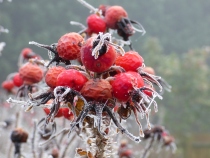 About the author
About the author
Lynda McKinney Lambert is a blind visual artist and author who lives in The Village of Wurtemburg, in rural western PA.
She is a retired professor of fine arts and humanities from Geneva College, in western PA.
In addition to her two published books of poetry & stories, she has just completed a full-length book, “Star Signs: New and Selected Poems,” which is now available for publication.
Find and Follow Lynda
On FaceBook:
Facebook Personal Page River Road Studio Page Walking by Inner Vision Page
Walking by Inner Vision Website & Blog
Scan Blog – A quiet Place of Inspiration. We love Art, Nature, Literature
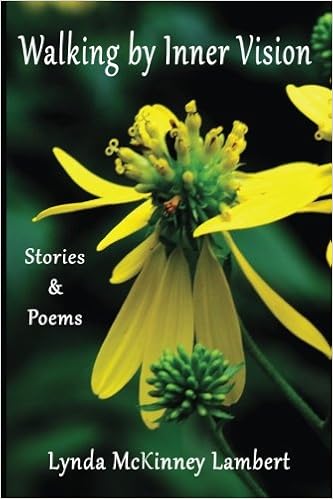 Walking by Inner Vision: Stories & Poems
Walking by Inner Vision: Stories & Poems
Click the image or title to go to Amazon
Lynda McKinney Lambert invites readers into her world of profound sight loss to discover the subtle nuances and beauty of a physical and spiritual world. She takes strands from ancient mythology, history, and contemporary life and weaves a richly textured new fabric using images that are seen and unseen as she takes us on a year-long journey through the seasons. All stories in this book were created after her sudden sight loss in 2007 from Ischemic Optic Neuropathy. Lambert invites us to see the world with new eyes.
 If you have had a strange experience or encounter that you would like to share, please get in touch with me at findme@scvincent.com (or my usual email if you already have it) and we can discuss a guest post.
If you have had a strange experience or encounter that you would like to share, please get in touch with me at findme@scvincent.com (or my usual email if you already have it) and we can discuss a guest post.
I am not looking for sensationalism or fictional tales… but in light of the response to some recent posts, I think it would be both useful and reassuring to others to realise that none of us are alone in these strange encounters and experiences. Perhaps we can open discussion on what they may be or may mean…and each of us sees our own reality.
If you would like to share your story but prefer to remain anonymous, we can discuss that too. If you would like to share your beliefs and opinions on the nature of these experiences, I would be happy to talk about a guest post. Through sharing with respect we may learn to understand our world and each other a little better.
You can find previously published encounters with elusive realities here


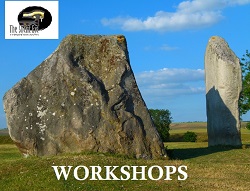



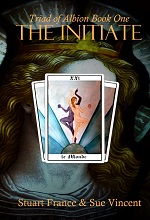



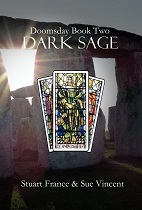








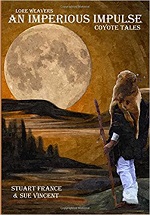


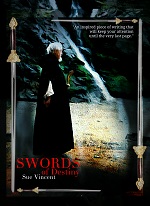

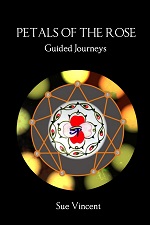

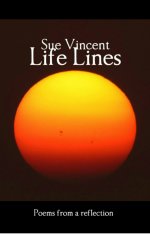




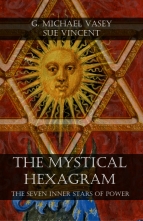

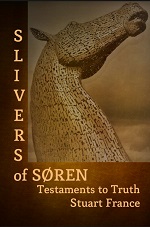


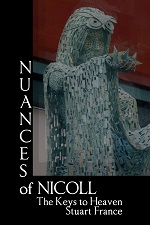


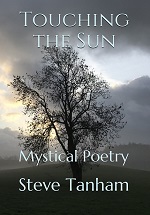

I really like this series, Sue. Such wonderful things that happen in this life.
LikeLike
I hope others will share their stories, Robbie.
LikeLike
Thank you for publishing this story, Sue! I am so thankful for this opportunity to share something so beautiful that happened in my life. I know that so many others have experiences with Elusive Realities, such as I have had, too. I love knowing there is “SOME THING MORE” for all of us.
LikeLike
This was a really lovely story, Lynda, thank you for sharing it here.
LikeLike
Reblogged this on Campbells World.
LikeLike
Thanks for sharing, Patty.
LikeLike
How I appreciate that you have shared my story, Sue, and Patty!
Thank you!
LikeLiked by 1 person
It was my plasure, Lynda.
LikeLike
Beautiful shared thoughts of life on a winter’s day 💜
LikeLiked by 1 person
A lovely story!
LikeLiked by 1 person
thank you, Eliza! How nice of you to comment. I am happy that you liked my story.
LikeLiked by 1 person
Lovely!
LikeLiked by 1 person
I think it is LOVELY that you liked my story, Jennie. Thank you so much. I hope you find your own unexpected bouquet of roses, too.
LikeLiked by 2 people
You are welcome, Lynda!
LikeLiked by 1 person
Reblogged this on SCAN and commented:
Re-Blogging this beautiful presentation of one of my stories, by Sue Vincent on her blog “Illusive Realities.” This story is in my latest book, “Walking by Inner Vision: Stories & Poems.” No wonder my book sales have DOUBLED LAST MONTH. My stories are uplifting and beautiful and good for the Human Heart. Thank you Sue for publishing my work.
LikeLiked by 1 person